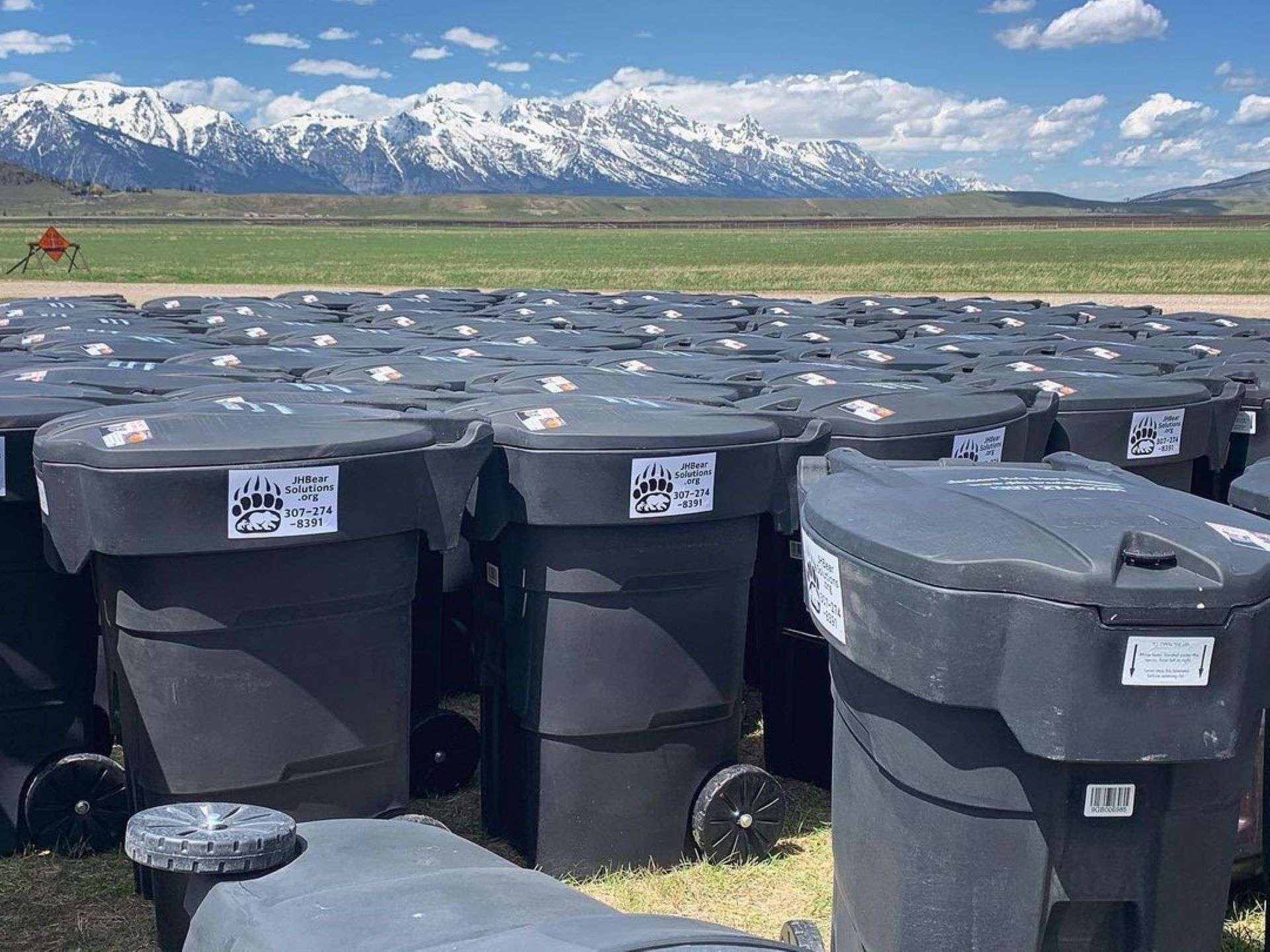
Jackson Hole, Wyoming, is located in the southern region of the Great Yellowstone Ecosystem (GYE), one of the most critical areas in the country for wildlife conservation of the threatened grizzly bear. This western frontier town tries to ensure that humans and the nearly 700 grizzlies who live within GYE can coexist safely and peacefully.
Unfortunately, where there is human existence, there is also inevitable conflict. In the year 2021, human-animal conflict has claimed the lives of six grizzlies who were reaching for unsafe food and garbage in the area. When bears - hungry for food - travel to populated areas for sustenance, including from garbage cans, they face an existential threat.
The grizzly bear is one of the main species responsible for a healthy GYE, and plays a vital role in maintaining the delicate balance in the overall ecosystem. Spanning 22 million acres within the northern Rocky Mountains in northwestern Wyoming, southwestern Montana, and eastern Idaho, GYE is among the last remaining large ecosystems in the northern temperate zone. An icon of the region, grizzly bears play an important role in regulating prey species, seed dispersal, forest fertilization and other essential activities needed for the ecosystem's survival - a role that no other species in the region can manage. If they disappeared, the area would change dramatically, affecting both wildlife tourism and the local economy. Grizzly bears also provide plentiful wildlife viewing and photography opportunities, including Natural Habitat Adventure's Hidden Yellowstone and Grand Teton Safaris and ours Yellowstone: The Ultimate Wolf & Wildlife Safari.
Realizing that reducing conflict with humans is a powerful way to protect grizzly bears, the Teton County Wyoming Board of Commissioners passed a regulation to secure all bear attractors in designated conflict areas. On April 12, 2022, the bylaw was amended, requiring all residents of the county to do the same or face heavy fines. An effort is now underway by nonprofits and concerned citizens to ensure that all residents have access to bear-proof trash cans, regardless of their financial situation. We at NatHub help achieve this goal with a donation and a call to action!
Grizzly bear and conflict with humans
In 2018, a federal decision was granted to protect the great grizzly bear from hunting in the greater Yellowstone area under the Endangered Species Act. Although hunting is illegal, these majestic creatures are increasingly entering confrontation with humans, resulting in loss of life.
Bears' traditional food sources are diminishing due to climate change and human impact. Hypereating (an abnormally increased appetite) before hibernation, bears consume up to 20,000 calories per day and gain 30 pounds per week. Whitebark pine, a traditional grizzly bear food source full of the fats and proteins needed for hibernation, is functionally extinct at GYE due to an infestation of beetles and thrush rust. Another food source, trout, has been displaced by invasive lake trout that are not easily accessible to grizzly bears. Due to these reduced food sources, grizzly bears are forced to travel long distances through livestock lands, populated areas, and busy roads to sustain themselves and their cubs.
Once these animals have adapted to the unnatural food sources, such as litter, chickens, apiaries (clumps of beehives—because bears really like honey!) and livestock feed, they acclimate back to these areas. Unfortunately, when bears seek food in populated areas, many problems arise. In order to prevent the damage caused by these formidable creatures and to protect pets, humans take lethal measures against bears who are simply trying to fill their stomachs. And in some cases, bears die fatally as they make their way to easy food sources in populated areas.
Bear-proof trash cans to the rescue
Litter is the number one cause of human conflict with bears. The solution to preventing this is plain and simple: Secure your litter boxes and remove any attractions.
Jackson Hole Beer SolutionsIt is a program run by a non-profit organization Wyoming Wildlife Defendershelping the residents of Jackson Hole comply with the county's new requirements, just in time for the bears to emerge from hibernation in search of food sources.
The program is geared toward reducing barriers, including costs, and providing bear-proof trash cans to anyone in the county. Jackson Hole Bear Solutions has a matching dollar-for-dollar fund to take donations even further. The program partners with the National Elk Refuge and the US Fish and Wildlife Service to achieve its goal of stocking and distributing bear-proof trash cans to local residents and businesses. The program also provides materials and installation assistance for electric fencing to secure compost piles, apiaries, and chicken coops.
Nat Hab Philanthropy is proud to contribute to this bear safety initiative by donating $3,250 to Jackson Hole Bear Solutions to secure 20 bear-safe litter boxes. If you would like to join us in enabling the people of Jackson Hole to live in peace with grizzly bears, please consider Donate to the nonprofit Jackson Hole Bear Solutions. Normally a donation of $325 would go for one bear-proof trash can, but for a limited time, the individual donation matching program allows for the purchase of two Trash cans for two low-income homes in the same amount! Of course, you can also donate more or less than that, and you can choose to make a one-time or recurring donation. Whatever the case, your donation will help make graying safer for years to come.
Source link

0 Comments